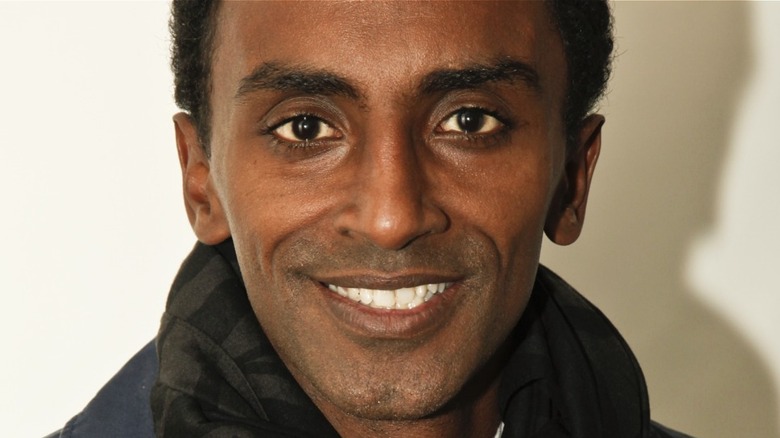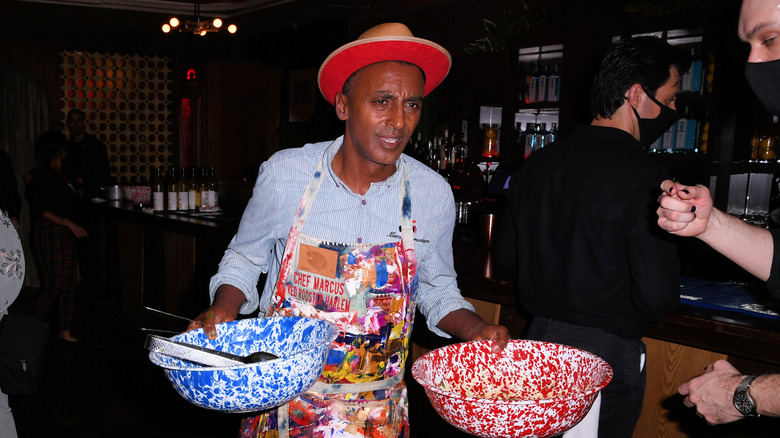Why Marcus Samuelsson Says Cooking Is About Identity
Michelin-starred chef Marcus Samuelsson was born and spent the first few years of his life under what can only be described as challenging circumstances in Ethiopia. He and his sister had caught tuberculosis as young children and lost their mother to the same illness. They were eventually adopted and brought to Sweden, where he learned to appreciate fresh food through the efforts of his adoptive grandmother, Helga (via CNBC).
But he never forgot his past, and on his website, Samuelsson also talks about the impact of his early years in Ethiopia, which he says inspired him in a different way. He writes: "I appreciate my Ethiopian roots because I see how hard people have to work there to survive, and I understand just how fortunate I am to live in this country. I am inspired by the way the people of Ethiopia lead their lives, and how everyone tries to help one another in the community. Their drive inspires me to work as hard as I can to take the knowledge I have about food and to share it with those who want to learn how to prepare fresh, affordable meals."
What food means to Marcus Samuelsson
He may have a bicultural background, but Samuelsson is not one who can say he neither has roots nor a strong sense of identity. As he reveals in the documentary "Julia," that is far from the case. He says: "Food for me is really a window into our own identity. It looks back at the history that was here before us [and] it really tells us who we are. If you want to taste who I am, taste this."
In another interview with GBH, Samuelsson credits Julia Child with opening America's eyes to the importance of food and cooking. "You've got to respect the house that Julia built, first of all," he says. "Our show wouldn't be around if it wasn't for Julia Child, and all of the work that [she and other chefs] have done before." He goes on to explain that such programs showcase cultures that might not otherwise be spotlighted on television. According to Samuelsson, he's received appreciative feedback from members of Nigerian and Armenian communities: "people saying 'thank you for putting us on TV and allowing us to tell our story.' And that for me is when the work really matters."

